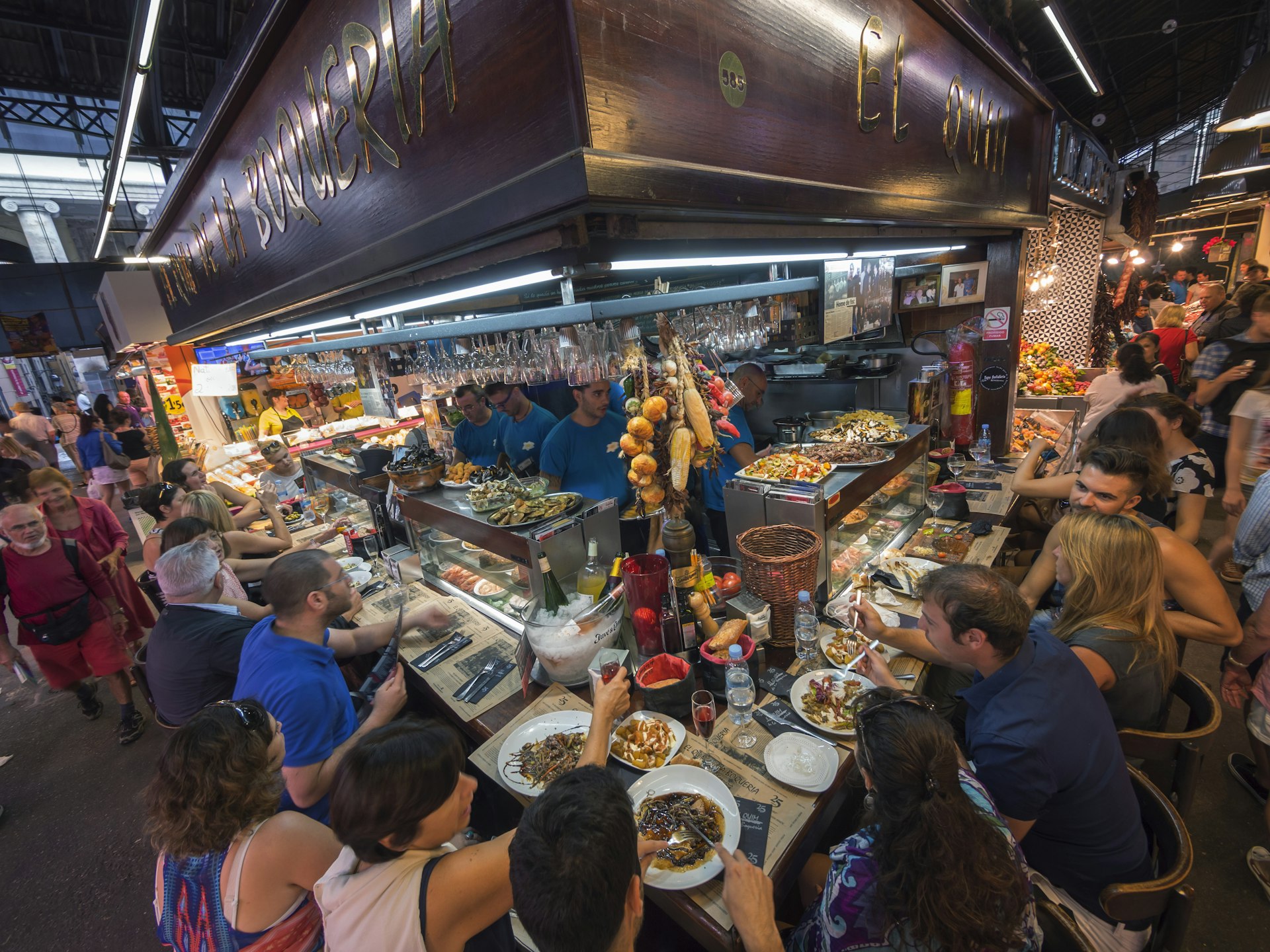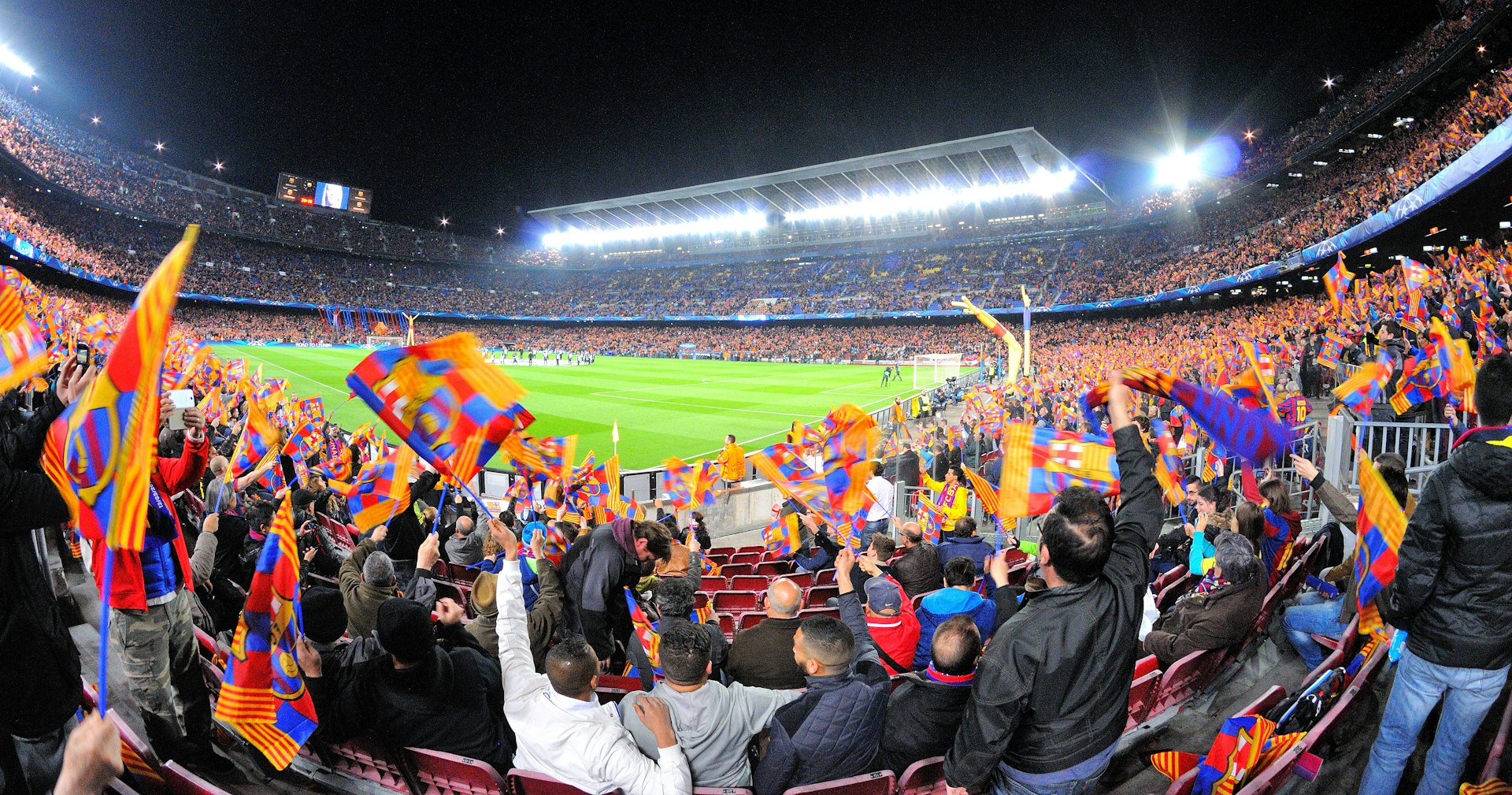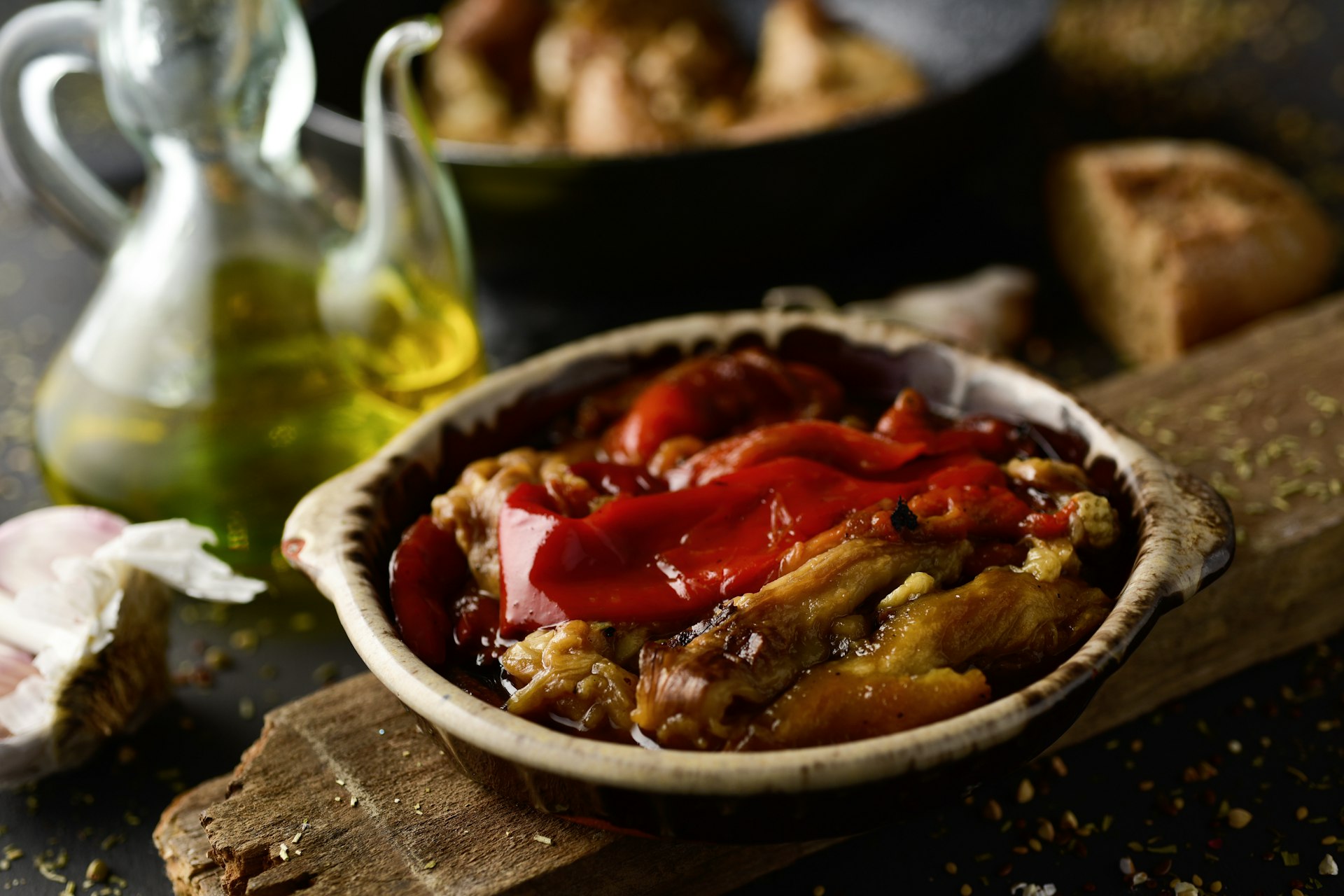Barcelona is Spain’s most visited city, and it’s not hard to see why – the historic capital of Catalonia is packed with galleries, museums, attractions and thriving restaurants.
Set between the mountains and sea, the city is celebrated for its unique architecture, famous artists and urban beaches. Here are the best things to do in Barcelona when you get there.
1. Visit the Sagrada Família
Almost every city has at least one landmark that you simply can’t miss, and the Sagrada Família is Barcelona’s. Antoni Gaudí’s magnificent masterpiece has been under construction for more than 130 years, and it’s still not finished.
Far from a construction site, however, the church features two grand facades studded with intricate stone carvings, towers that gleam with gem-like tiles and an interior filled with tree-like columns soaring up toward the canopy ceiling. Before the pandemic forced a pause, the building was expected to be completed in time for the 100th anniversary of Gaudí’s death in 2026, but that date has now been pushed back, though construction has resumed.
Planning tip: The Sagrada Família is one of the most popular tourist attractions in Spain, and it can get very busy. To avoid the crowds, visit early in the morning (it opens at 9am) on a weekday.
2. See more of Gaudí’s designs
The Sagrada Família may be the most famous of Gaudí’s buildings, but all his wonderful whimsical designs are worth visiting. The most well-known are Casa Batlló, with its iridescent dragon-like scales and skull and bone-like balconies, and La Pedrera, with its undulating stone façade and fanciful chimneys. Some of his lesser-known but equally beautiful buildings include Casa Vicens, the first house he ever designed; Palau Güell, which he designed for his patron Eusebi Güell; and the Torre Bellesguard.
3. Wander the Gothic Quarter
Barcelona’s Gothic Quarter (Barri Gòtic) is the oldest and most atmospheric part of the city. Characterized by small alleyways, hidden plazas and historic buildings, it lies to the east of La Rambla, the famous pedestrian street that runs through the center of the old town.
The neighborhood is scattered with century-old shops, small bars and cafes. Some highlights of the Gothic Quarter include the striking Plaça Reial, fringed by cafes and palm trees; Plaça Sant Jaume, home to the grand Palau de la Generalitat; and the impressive La Catedral.
Planning tip: Many parts of the Gothic Quarter are known for late-night bars and clubs that are still going well into the morning. Perfect if you want to dance until dawn, but not the best neighborhood to stay in if you’re traveling with young kids or those who appreciate an early night.
4. Explore Barcelona’s food markets
La Boqueria might be the most famous of Barcelona’s food markets, but each neighborhood has its own, and there are several excellent ones to choose from. La Boqueria is the oldest and one of the most atmospheric, but in recent years, more stalls have given over to things such as tropical fruit shakes and novelty candy rather than traditional produce.
For a more authentic vibe, visit the modern Mercat de Santa Caterina with its multi-colored wavy roof or the grand Mercat de Sant Antoni, which reopened in 2018 after nine years of renovations.

5. Soak up the sun at Barcelona’s city beaches
Whatever time of year you visit Barcelona, the beaches won’t disappoint. Even in winter, it can be sunny enough to sit outside and enjoy a meal at one of the seaside restaurants, while summer offers everything from sunbathing and swimming to water sports.
The city boasts a 5km (3-mile) stretch of coastline, home to nine different beaches. There’s Sant Sebastià with its range of upscale restaurants, Somorrostro lined with hip nightclubs and Nova Icaria with a watersports center and beach volleyball.
6. Venture up Montjuïc
Montjuïc is the green hill to the south of the city, home to the Olympic Park, as well as numerous museums and gardens. Rising from Plaza d’Espanya, you’ll first see the grand sets of stairs and fountains cascading down from the magnificent palace housing the Museu Nacional d’Art de Catalunya. Behind that is the huge Olympic stadium and the rest of the Olympic Park.
Planning tip: The Museu Nacional d’Art de Catalunya has a terrace that offers spectacular views of the city and is a popular spot to watch the sunset. The open-air bar means you can enjoy a few drinks while taking in the view.

7. Snack on some tapas
When hunger pangs arrive in the afternoon or early evening, take advantage of the pre-dinner tapa. This means heading to the local favorite for a bite of anchovies, sausage, squid, wild mushrooms, roasted peppers or dozens of other tempting morsels. Wine, cava and beer all make fine accompaniments.
Planning tip: Many tapas spots are lively stand-around-the-bar affairs. When it’s time for a change of scenery, barcelonins make their way to dinner or just head to another tapas bar and skip the sit-down formality altogether.
8. Learn about an icon at the Museu Picasso
Picasso lived in Barcelona between the ages of 15 and 23, and elements of the city undoubtedly influenced his pieces, from the colorful but simply painted frescoes hanging in the Museu Nacional d’Art de Catalunya to the imaginative trencadís-style mosaics (pre-Cubist some say) of Gaudí. The Museu Picasso‘s setting adds to the appeal, as do the buzzy, history-rich surrounding streets of El Born.

9. Catch a game at Camp Nou
FC Barcelona plays a prominent role in the city’s imagination. Heading to a football match at Camp Nou between September and May is the best way to catch a bit of Barcelona fever, but watching it on screen in a bar can be just as much fun, depending on the crowd.
Planning tip: Even if you can’t make it to a game, the interactive Barça Stadium Tour and Museum experience takes you through the locker rooms and onto the field, hallowed ground for many Catalans.
10. Experience Barcelona’s famous nightlife
The Barcelona night holds limitless possibilities. Start with sunset drinks on a rooftop terrace or sink your heels into the sand at a rustic-chic beachside xiringuito. As darkness falls, the city transforms with buzzing squares and live music, and around midnight, the bars fill.
Pick from old-school taverns, plush lounges in lamp-lit medieval chambers, sleek cocktail dens, boisterous cava bars, basements churning out brassy jazz and more. If you’re still standing at 3am, hit the clubs and keep going until dawn.

11. Spend an early morning on La Rambla
Sure, the leafy 1.2km (0.75-mile) pedestrian boulevard of La Rambla that stretches toward the sea is the most touristed spot in town – at times, you can barely push through the crowds. But come first thing in the morning, and you’ll see that, beyond the souvenir shops and craft sellers, it’s pure sensory overload.
Open-air cafes, fragrant flower stands and a much-overlooked mosaic by Miró dot the pavement, while key venues line both sides of the street, including the elegant Gran Teatre del Liceu, the sprawling Mercat de la Boqueria and numerous galleries. Several other barris, such as El Poblenou, have their own attractive rambles, too.

12. Enjoy Catalan cuisine
Barcelona is a great foodie city, known throughout the world for its innovative chefs and creative cuisine. While you’ll find tapas bars everywhere, be sure to sample some local Catalan dishes, too.
Before you dine, join in l’hora del vermut at a typical vermouth bar, which pairs the fortified wine with bites of pickled anchovies and olives to whet the appetite. Follow it up with traditional Catalan dishes, such as butifarra amb mongetes (sausage with white beans), suquet de peix (fish stew), escalivada (roasted red peppers, onions and eggplant) and crema catalana (similar to crème brûlée). Sample the cuisine at Casa Delfín.
13. Celebrate during festival time
Because Barcelona has a festival almost every other month, it won’t be hard to make your trip to the city coincide with one. There are the patron-saint festivals of Santa Eulalia and La Mercé in February and September, respectively, La Diada de Sant Jordi (when people give each other gifts of books and roses to celebrate St George) and the fire festival of St Joan in mid-June.
Some of the main features of Catalan festivals include the castellers (human towers), huge parading giants and correfocs, where firework-wielding devils dance through the streets.
14. See a range of works at Fundació Joan Miró
Joan Miró, the city’s best-known 20th-century native son, bequeathed this art foundation to his hometown in 1971. The light-filled buildings are crammed with seminal works, from Miró’s timid early sketches to paintings from his last years.

15. Scope out examples of Modernista architecture
One of the things that makes Barcelona so charming is its Modernista architecture. An artistic movement that affected everything from literature to art to architecture, the Modernisme era lasted from the late 19th to the early 20th centuries.
You can identify these buildings by their bright colors, floral or botanical motifs, patterned tiles and curvy lines. Some of the best examples can be seen around the L’Eixample area, but you can also find them dotted all over the city. Besides Gaudí’s Modernista works, some of the best examples in the city are the Palau de la Música Catalana and the Recinte Modernista de Sant Pau, both designed by the architect Lluís Domènech i Montaner.
16. Explore up-and-coming El Poblenou
On the up is the formerly industrial neighborhood of El Poblenou, northeast of the center. Vacant warehouses are being reimagined as creative tech and design hubs, cafes, boutiques, bars and more.
17. Sip a drink at one of L’Eixample’s rooftop bars
Admire Modernista marvels over a cocktail or vermouth. L’Eixample‘s elegant streets conceal an array of hidden-away, view-laden open-air bars and cafes beloved by barcelonins, many of them within swish hotels but open to all.
